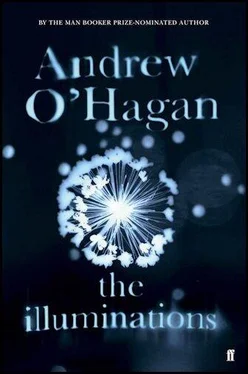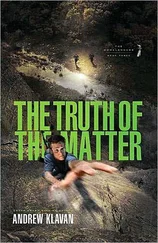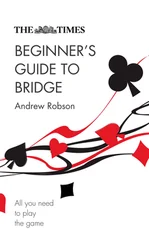‘You’ve wanted to go for ages, haven’t you?’
‘Yes. Since the snow.’
Sitting on the wall, he smoked a cigarette, watched the water. It was a loss of spirit that had occurred in him, a loss of make-believe, that’s how he thought of it, and he knew it meant he would have to start again. The waves arrived on the sand and they bubbled there and he liked it, seeing the white froth and how it disappeared in front of him. He later wished he could capture the peace he had known over those hours on the seawall as he looked into the black distance, the lighthouse on the Holy Isle beating out a message just for him. The mountains of Arran he felt he had seen in another time, a recent one, but there was no gunfire or flares, no broken sleep, no enemy below, just the mountains themselves, the steady return of the fishing boats and the light that came with the morning.
‘You’re in England now,’ the nurse said. ‘You’re not in Afghanistan any more, do you hear me?’ That was the first time he saw the room, though Scullion knew it wasn’t seeing in the normal sense because everything was blurred with a milky radiance. And then, one at a time, he counted the colours back into his life. She was moving tubes about his face. For minutes or days he saw her green tunic. She was chatty, the nurse, and her head came in and out of focus, lifting, prodding, reminding him of school. One day a pair of blue surgical gloves fluttered over him like a hawk. A yellow drink came with a straw but he couldn’t.
Three weeks in Critical Care. ‘You’re doing great,’ she said. ‘You’re in
Birmingham
.’ Scullion wanted to say this was a contradiction in terms but he couldn’t speak and didn’t know if his mouth was moving.
Try to be nice
Sunlight broke through the blinds one day, then he heard Madeleine, her voice by the bed and her hand smoothing his hair. He couldn’t afford to be miles away now that Madeleine was here, the spouse of doom, passing small pink sponges into his mouth.
‘Drink, darling,’ she said.
He smelt her perfume. Anaïs Anaïs.
It came in small bottles. He fell asleep. And when he woke up again he imagined he saw a goat’s bones on the sand and staring down from the mountain a boy with brown eyes. What if evil
came and held your hand and said you were in England?
She sat in Kehoe’s pub in one of the snugs. He saw her. It was twenty-five years ago and you couldn’t smoke a cigarette without Madeleine taking half of it and kissing it down to the filter. She had a perfect smile and he loved the way she knew more than she said about everything. She just laughed instead of boasting. He called her Kitty because she loved Parnell. Back in college they had sex every day and he remembered her spraying scent into her bathwater afterwards. Sitting in the bath with her knees up to her chest asking for a puff, she looked as if trouble had been banished from her life. Disaffection was never going to touch this sweet woman, the Kitty who gleamed and the Kitty who smoked.
He lay thinking of her. Heart monitors beeped in the distance and every day more detail arrived. Madeleine was always there in the morning and he began to wonder if she’d forgotten that she hated him. ‘Don’t you remember, Maddie,’ he said to himself, ‘the day you woke up without children? And your husband was off in the sand again looking for snakes and vermin. On tour again. He wasn’t the Charlie you’d known, was he? Him hiking round the world killing people because the government wished voters to see they were taking a strong line.’
Wasn’t
Charlie
, he thought.
‘We wanted different things didn’t we, Mad? I was fighting out in some shithole and you were booking rooms in expensive hotels. That’s right. We wanted different lives and we grew apart and these things happen to the very best of people, don’t they, Madeleine? And you just wanted someone to be kind and to look at you that way again.’ So she changed the locks and gave his books to Amnesty.
‘It’s hard,’ she said to her friends in wine bars, ‘but some men, you know, they’re nice in bed, they’re good to you, but they’re just an absence when it comes to it. Poor Charlie. He just wants to be with the tented people.’ And now she stroked his head and called him darling. This woman who would float for ever through his mind in summer dresses.
‘We tried to save the left leg. The other one was off when you arrived. But we had to amputate, old boy. It’s too bad. It’s just too bad, but you’ll recover.’
Scullion lifted a hand, bending one of three remaining fingers. ‘Yes,’ said Colonel Pettifer, the chief surgeon. ‘Both legs, old boy. You’ve lost an eye and your mouth is damaged, but we’ll fix that. And the fingers, obviously. But I wouldn’t worry too much about that.’
The heavy sedation wiped Scullion’s questions. For weeks he roamed in a field of floating reds, before he saw white carnations. A week later it was lines from ‘The Charge of the Light Brigade’.
‘Forward, the Light Brigade!’
Was there a man dismay’d?
Not tho’ the soldiers knew
Some one had blunder’d:
Theirs not to make reply,
Theirs not to reason why,
Theirs but to do and die:
Into the valley of Death
Rode the six hundred.
He spoke the words to his own face in County Westmeath, the clear eyes of his boyhood, and he knew the boy’s wonder would
only awaken to grief. He’d never given himself good advice and it was too late. Was that Madeleine holding the blunderer’s hand, counting the days, saying all would be well now between them?
‘Patience,’ the surgeon said.
‘The wounds are healing and it’s all about …’
‘… commitment to getting … that’s …’
‘And then you won’t know yourself.’
The tubes came out. One day: the theatre. A journey under lights and the operation on the mouth. The nurse said mud and dirt had been embedded in his gums, causing infection. Pettifer picked out the material with a silver tool and then he bent over to show him the grains on a swab. ‘Grass from an Afghan field.’ All the while Madeleine spoke about the good eye. He was in England now and many patients walk again.
A day came when his mouth had healed enough for him to try getting out a few words. He took his time. It was slow. And the first words he spoke were not curses or woes, not instant requests or questions about the legs. He simply said enough to make it clear that Madeleine should leave. He was sitting up and he could see the outline of her blonde hair, her white blouse, and he imagined her looking at the stumps of his legs and seeing that the whole man she disliked was gone.
Two weeks later he could say much more to the nurse. ‘No sentimentality. You can write it on the end of the bed.’
‘Like “Nil by mouth”?’ she said.
‘That’s right. Nil by sentiment.’
‘You’re back with us. Good-oh. Sentiment? I think you’ll find that sort of thing’s in short supply round here, Major. Shame about the lady, though. She was here for weeks.’
‘She comes from money,’ Scullion said. ‘Or they pretend they
have money. What they really have is debt. Those people live with so many lies they forget the money thing is false, too. And one day you just have to get away from them.’
‘Too much information,’ the nurse said.
The day he dismissed her, Madeleine went back to the family quarters and phoned her sister in County Clare. She was crying. ‘The thing Charlie will never understand’, she said, ‘is that he’ll always be all right because he’ll always have himself. He’ll never see it, but there’s a sort of complete selfishness in him.’
Читать дальше











